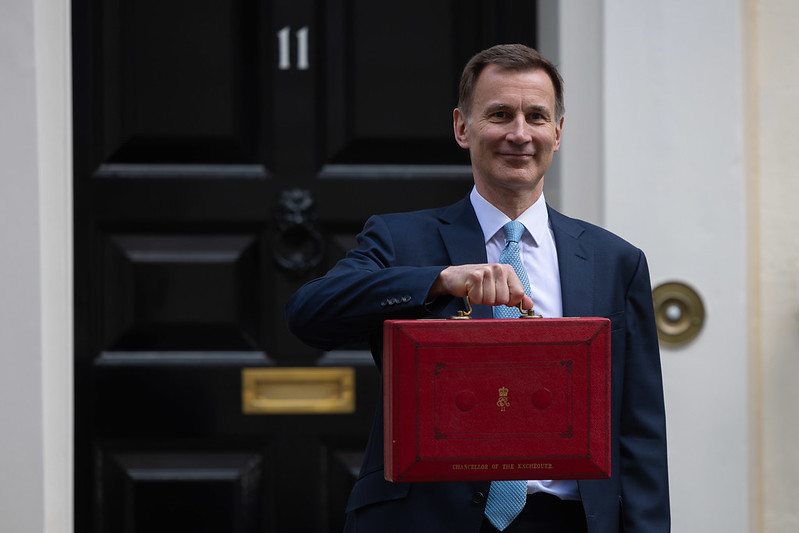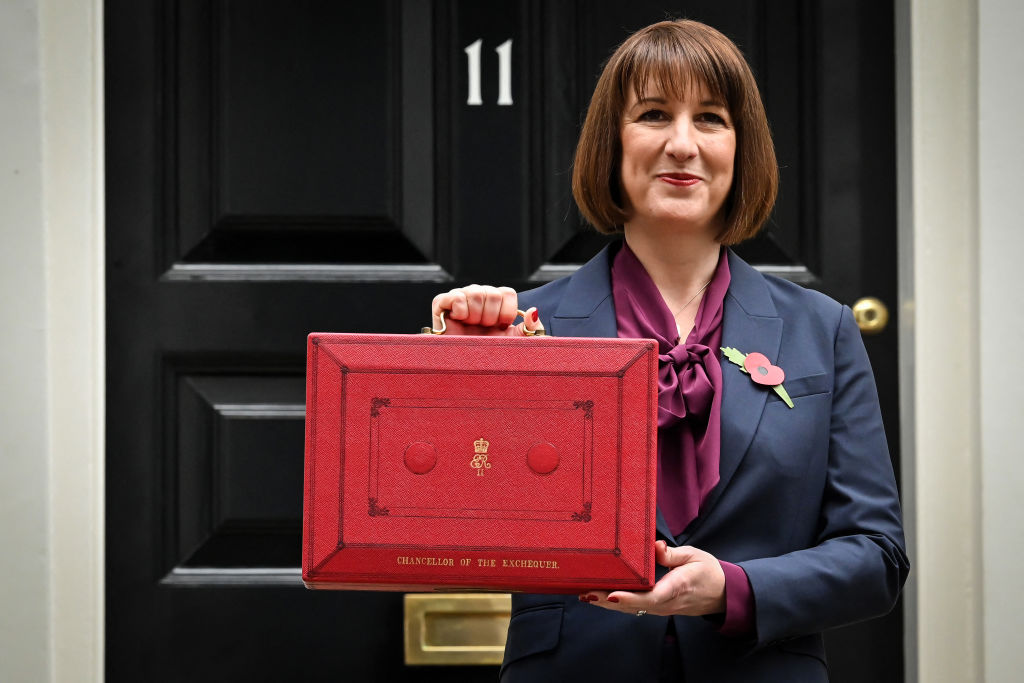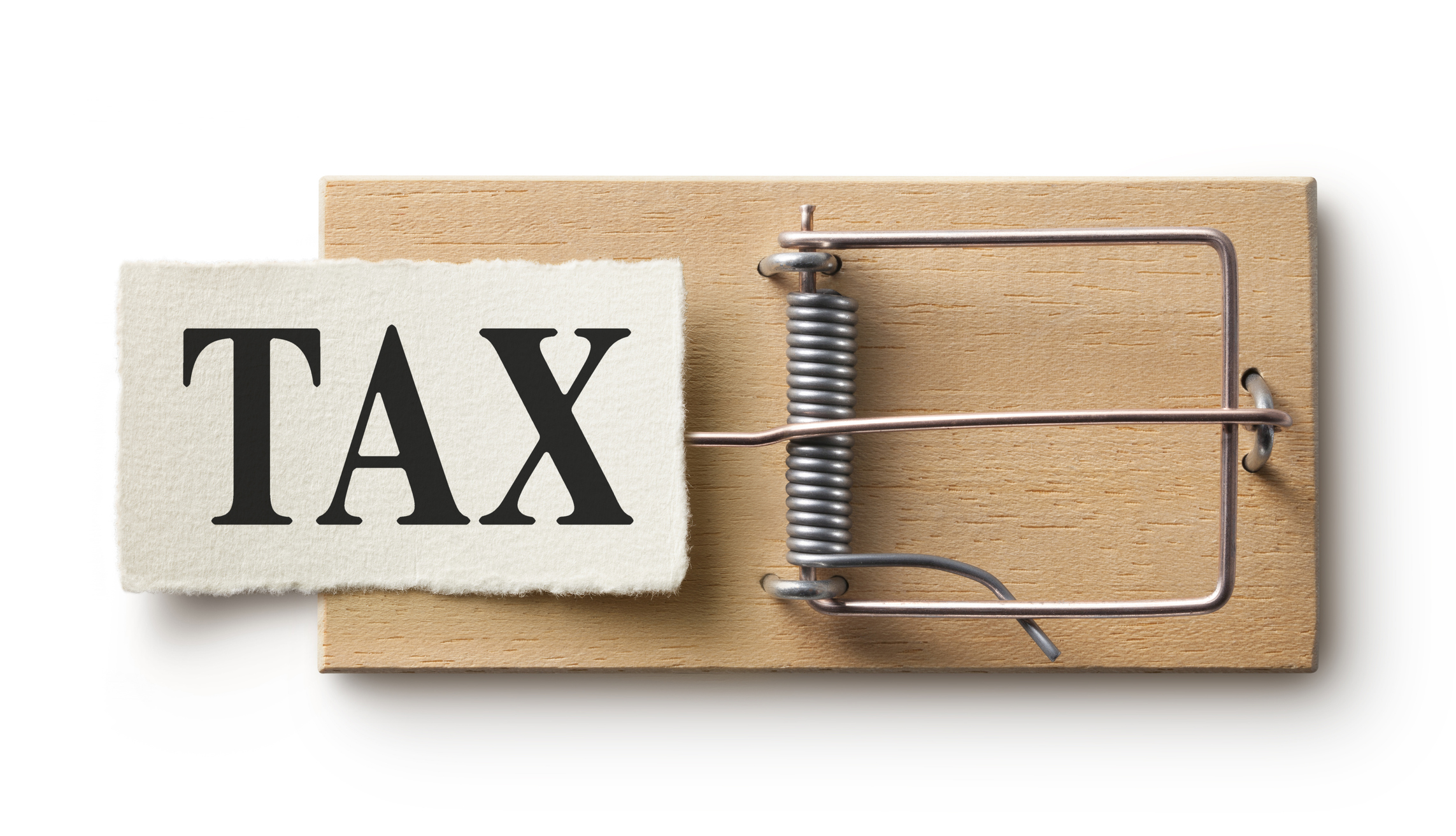Budget 2024: National Insurance cut, a new British ISA, and reform of the child benefit charge - here’s what has been announced
The chancellor has announced a host of changes, including cutting National Insurance again, and abolishing some tax reliefs. Here’s how the Budget will affect your finances.


Get the latest financial news, insights and expert analysis from our award-winning MoneyWeek team, to help you understand what really matters when it comes to your finances.
You are now subscribed
Your newsletter sign-up was successful
Want to add more newsletters?

Twice daily
MoneyWeek
Get the latest financial news, insights and expert analysis from our award-winning MoneyWeek team, to help you understand what really matters when it comes to your finances.

Four times a week
Look After My Bills
Sign up to our free money-saving newsletter, filled with the latest news and expert advice to help you find the best tips and deals for managing your bills. Start saving today!
Chancellor Jeremy Hunt has delivered a further cut in National Insurance in today’s Budget statement, for both employees and the self-employed.
It is the last scheduled Budget before the general election, which is expected to take place later this year.
Inside the famous red box were a wide range of announcements, from a new British ISA and a three-year NS&I savings bond to increasing the VAT threshold and abolishing certain tax reliefs.
MoneyWeek
Subscribe to MoneyWeek today and get your first six magazine issues absolutely FREE

Sign up to Money Morning
Don't miss the latest investment and personal finances news, market analysis, plus money-saving tips with our free twice-daily newsletter
Don't miss the latest investment and personal finances news, market analysis, plus money-saving tips with our free twice-daily newsletter
Speaking about the widely-anticipated National Insurance cut, Hunt said: “Our changes will help 27 million employees, and two million self-employed people. Changes that make our system simpler and fairer and grow our economy by rewarding work.”
We look at the Budget announcements and how they could affect the pound in your pocket.
National Insurance cut
In a widely-expected move, the chancellor announced that National Insurance will be cut by another 2p this April, taking the main rate from 10% to 8% for employees.
It follows a 2p reduction that was announced in last year’s Autumn Statement and came into effect in January.
The government is also cutting a further 2p from the main rate of self-employed National Insurance on top of the 1p cut announced at the Autumn Statement. This means that from 6 April, the main rate of Class 4 NICs for the self-employed will be reduced from 9% to 6%.
The measures will save the average employee £450 a year and the average self-employed person £350 a year.
Hunt claimed that National Insurance had been cut by one third in six months, and the average earner now has the “lowest effective tax rate since 1975”.
An employee earning £30,000 will save about £349 a year from the 2p National Insurance cut, according to the wealth manager Quilter. Someone earning £40,000 will save £549, while those on salaries of £50,000 will save £749.
Employees on higher salaries of £50,270 or more – in other words, higher and additional-rate taxpayers - will see their annual disposable income rise by £754.
Child benefit high income charge reformed
While a cut to National Insurance had been leaked in the days leading up to the Budget, the surprise rabbit in the chancellor’s hat was reforming the high income child benefit charge, which was saved until the end of his Budget speech.
Hunt said that child benefit was “good for children, parents and the economy” but that the high income child benefit charge was “confusing and unfair”.
The charge kicks in when a parent earns £50,000 or more, reducing the amount of child benefit paid, and removing the payment entirely when the parent earns more than £60,000.
It means that a family where one parent earns £60,000 and the other earns £10,000 (a total of £70,000) does not get to keep any of their child benefit, but a family where both parents earn £49,000 each (a total of £98,000) can keep all of the money. The tax charge has long been cricitised as unfair.
Hunt announced a consultation on basing the charge on a household’s income, rather than the higher-earning parent’s income. He warned that it would need “significant reform to the tax system” so the change would not happen until April 2026.
In the interim, the chancellor said the threshold to start paying the charge would be raised from £50,000 to £60,000, meaning parents who earn less than £60,000 would be able to keep all of their child benefit. Parents that earn £80,000 or more (rather than the current £60,000) will not be able to keep any child benefit.
The government estimates that nearly half a million families will gain an average of £1,260 in 2024-25 as a result of the change.
British ISA and NS&I bond launch
Hunt announced that the ISA system would be reformed to encourage more people to invest in UK assets.
A brand new “British ISA” will be created, with a separate £5,000 annual allowance for investing in UK equities. The chancellor said it would “ensure British savers benefit from the growth of the most promising UK businesses”.
He also announced that NS&I, the government-backed savings organisation that runs Premium Bonds, would launch a three-year British savings bond. The savings account is expected to launch in early April, and will be available to buy online. Other details, including the interest rate, have not been revealed yet.
The Treasury said the launch of a new UK ISA and British Savings Bond would “provide opportunities to save whilst supporting investment in the UK”.
NatWest retail share offer confirmed
The chancellor also confirmed that the retail share offer of part of the government’s NatWest shareholding would take place this summer, “subject to supportive market conditions and achieving value for money for the taxpayer”.
The government’s shareholding is just below 33%. It intends to fully exit its shareholding in NatWest Group by 2025-26.
Furnished holiday lettings tax regime abolished
The chancellor said he will scrap tax breaks that make it more profitable for second home owners to let out their properties to holidaymakers rather than to long-term tenants to rent.
The regime will be abolished from 6 April 2025, meaning short-term and long-term lets will be treated the same for tax purposes.
The aim is to make it easier for local people to find a home in their community, and stop them being priced out of holiday hotspots.
Scrapping the tax relief will raise up to £245 million a year for the government’s coffers.
Stamp duty relief for multiple properties axed
Stamp duty relief for people buying more than one dwelling is also being abolished. This will take effect from 1 June 2024.
Hunt said this was because the relief was being regularly abused.
Sean Randall, stamp duty partner at the accountants Blick Rothenberg, said that some families had used the relief on annexes, saving thousands of pounds in stamp duty, and that had likely driven the government’s decision to abolish the relief.
He commented: “The government has chosen to abolish a stamp duty relief that incentivises investment in the public rented sector (PRS). The relief can reduce the stamp duty rate for relevant purchases to as low as 1%.
“Although the relief has undoubtedly helped investment in the PRS, it has also encouraged claims made in respect of family homes with annexes – worth up to £88,750 of tax relief for a single annexe. Property companies and institutional investors in PRS will surely be angry that the government has ‘thrown the baby out with the bathwater’ rather than tackling abuse or unfairness head on.”
In terms of how scrapping the relief will affect those buying a property at the moment, the Budget document said: “Property transactions with contracts that were exchanged on or before 6 March 2024 will continue to benefit from the relief regardless of when they complete, as will any other purchases that are completed before 1 June 2024.”
Alcohol duty and fuel duty frozen
A freeze on alcohol duty, which had been due to end in August, will continue until February 2025. The government said this would result in 2p less duty on an average pint of beer, 1p less duty on a pint of cider, 10p less duty on a bottle of wine, and 33p less duty on a bottle of spirits, than if the planned duty increase had gone ahead.
Hunt said in his Budget speech: “Another cost that families and businesses worry about is fuel. If I did nothing, fuel duty would increase by 13% this month. I have decided to freeze it for another 12 months. This will save the average driver £50 next year.”
The fuel duty freeze means the temporary 5p fuel duty cut is extended and the planned inflation-linked increase for 2024-25 is cancelled.
Non-dom tax regime overhauled
The non-dom tax regime, for UK residents whose permanent home is overseas, will be replaced with new rules from April 2025.
The Budget document said: “To help reduce taxes on working people the government will ensure that those with the broadest shoulders pay a bit more, by abolishing the tax rules for non-UK domiciled individuals, or non-doms, and replacing them with a residence-based regime.
"This will ensure that all UK residents who stay in the UK for over four years will pay the same tax on their foreign income and gains, regardless of their domicile status, creating a modernised regime that is simpler, fairer and more competitive.”
CGT rate on property lowered
The government will reduce the 28% higher rate of capital gains tax for residential property to 24%, from 6 April, 2024.
The lower rate will remain at 18% for any gains that fall within an individual’s basic-rate band.
The government hopes that lowering the higher tax rate will encourage landlords and second home-owners to sell their properties, making more available for home buyers.
VAT threshold increased
The threshold at which small businesses must register to pay VAT will be raised from £85,000 to £90,000 from April. Hunt said this would support small businesses and help them grow.
Paul Falvey, tax partner at the accountants BDO, pointed out that while the £5,000 increase was welcome news, "the threshold has not risen in line with inflation over the last five years".
Get the latest financial news, insights and expert analysis from our award-winning MoneyWeek team, to help you understand what really matters when it comes to your finances.

Ruth is an award-winning financial journalist with more than 15 years' experience of working on national newspapers, websites and specialist magazines.
She is passionate about helping people feel more confident about their finances. She was previously editor of Times Money Mentor, and prior to that was deputy Money editor at The Sunday Times.
A multi-award winning journalist, Ruth started her career on a pensions magazine at the FT Group, and has also worked at Money Observer and Money Advice Service.
Outside of work, she is a mum to two young children, while also serving as a magistrate and an NHS volunteer.
-
 Should you buy an active ETF?
Should you buy an active ETF?ETFs are often mischaracterised as passive products, but they can be a convenient way to add active management to your portfolio
-
 Power up your pension before 5 April – easy ways to save before the tax year end
Power up your pension before 5 April – easy ways to save before the tax year endWith the end of the tax year looming, pension savers currently have a window to review and maximise what’s going into their retirement funds – we look at how
-
 The most and least expensive countries to be an expat in 2025
The most and least expensive countries to be an expat in 2025With some Brits fleeing the country to avoid seemingly ever-increasing taxes, we look at the most and least expensive countries to emigrate to.
-
 What has changed with employers’ National Insurance – and how will it impact you?
What has changed with employers’ National Insurance – and how will it impact you?Will you feel the effects of the National Insurance hike, as businesses warn of redundancies, smaller pay rises and higher inflation?
-
 Conservatives pledge to cut National Insurance again – how much could you save?
Conservatives pledge to cut National Insurance again – how much could you save?News A 2p reduction in National Insurance is a key feature of the Tory’s general election manifesto.
-
 Workers set for new national insurance tax cut – how much will you save?
Workers set for new national insurance tax cut – how much will you save?News National insurance tax rates have fallen but frozen allowances may limit the benefits.
-
 Spring Budget: What the latest National Insurance cut means for you
Spring Budget: What the latest National Insurance cut means for youNews Chancellor Jeremy Hunt announced a 2p cut in National Insurance in his latest fiscal update – how much could you actually save?
-
 Brace for a year of tax rises
Brace for a year of tax risesThe government is strapped for cash, so prepare for tax rises. But it’s unlikely to be able to squeeze much more out of us.
-
 Topping up state pension to become easier with new online tool
Topping up state pension to become easier with new online toolAnyone looking to buy extra National Insurance contributions and boost their state pension currently has to make multiple phone calls - but a new online tool is on its way.
-
 Gender pensions gap - are women paying a parenthood penalty?
Gender pensions gap - are women paying a parenthood penalty?Trade body warns women face serious obstacles to saving enough for retirement as the gender pensions gap continues. Is raising a family having a detrimental impact on our pension pot?